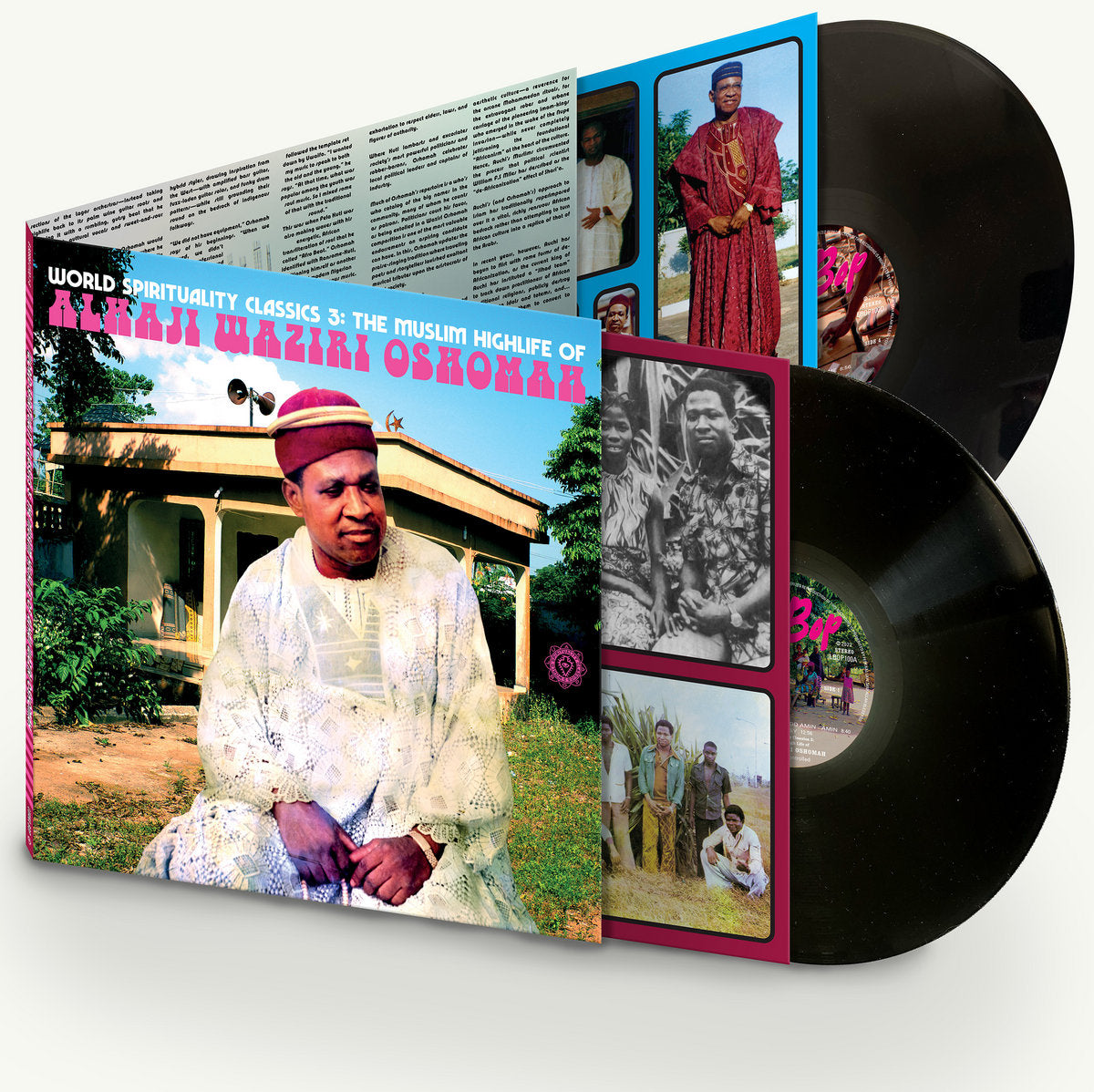FXCK RXP
ALHAJI WAZIRI OSHOMAH "World Spirituality Classics 3: The Muslim Highlife of Alhaji Waziri Oshomah" VINYL GATEFOLD 2LP
ALHAJI WAZIRI OSHOMAH "World Spirituality Classics 3: The Muslim Highlife of Alhaji Waziri Oshomah" VINYL GATEFOLD 2LP
Couldn't load pickup availability
Across a five-year window, the albums in Luaka Bop’s World Spirituality Classics series have been few, yet profound. First was a divine selection culled from Alice Coltrane’s ashram tapes; next, a set of gritty, body-moving gospel in The Time For Peace Is Now. Each compilation has suggested—regardless of denomination or affiliation—a path to spiritual understanding through music.
Now comes World Spirituality Classics 3: The Muslim Highlife of Alhaji Waziri Oshomah, a Nigerian singer whose body of work stretches back to the 1970s. A devout Muslim who also grew up as a devoted fan of African highlife, Oshomah straddles the line between the secular and the sacred, weaving together traditional Nigerian musical styles with a mind observant of Islamic teachings. Oshomah lives and plays in Auchi, the Islamic center of southern Nigeria, in what might be seen as a balancing act of sort between the two major world religions that exist in the country: fundamentalist Muslims to the north, slightly more liberal Christians in the south. Despite differences in doctrine, Oshomah deals with our shared earthly sins: gossip, lust, jealousy, those that wish evil on their brothers.
Take the opener “Forgive Them Oh God Amin – Amin,” which is rooted both in Luke 23:34 and a repeated call to God closer to what you’d hear in a mosque. Oshomah’s voice is earthy, incessant, the call-and-response of “Amin” with his backup singers worrying across the unhurried Afrobeat. It makes for eight seemingly static yet transportive minutes. That leisurely pace gives the music a relaxed pace, but also plays with our notion of time. Oshomah delivers an homage to a “big-hearted” person on “Alhaji Yesufu Sado Managing Director,” which stretches beyond 17 minutes yet never wears out its welcome, thanks to airy backing harmonies and an electric organ line that feels like a leisurely stroll through a park.
Aspects of Oshomah’s music might bring to mind the likes of Ebo Taylor’s Ghanaian highlife, the electronic-laced output of William Onyeabor, the muted-trumpet griots of late ‘70s Salif Keita, or the vast expanse of Fela Kuti, but his music always dances away from easy assemblage. Chiming keys, spiked wah-wah guitar, and shuffling drums underpin “Ovini Omoekeke Alhaji Inu Umoru,” giving it a gently psychedelic feel. “Jealousy” has its synthesizer whinny approximate a siren, before the song blooms to life with percussive shakers, gurgling organ, and guitar, the beat itchy and restless. Meanwhile, Oshomah’s voice remains steady and plainspoken. His lyrics are a mix of folk wisdom, sermon, and straight talk. “May you not die of hypertension my brother and friend,” goes one line. It’s punctuated by his deep, knowing laugh, marveling at Allah’s teachings as well as man’s foibles.
Share

